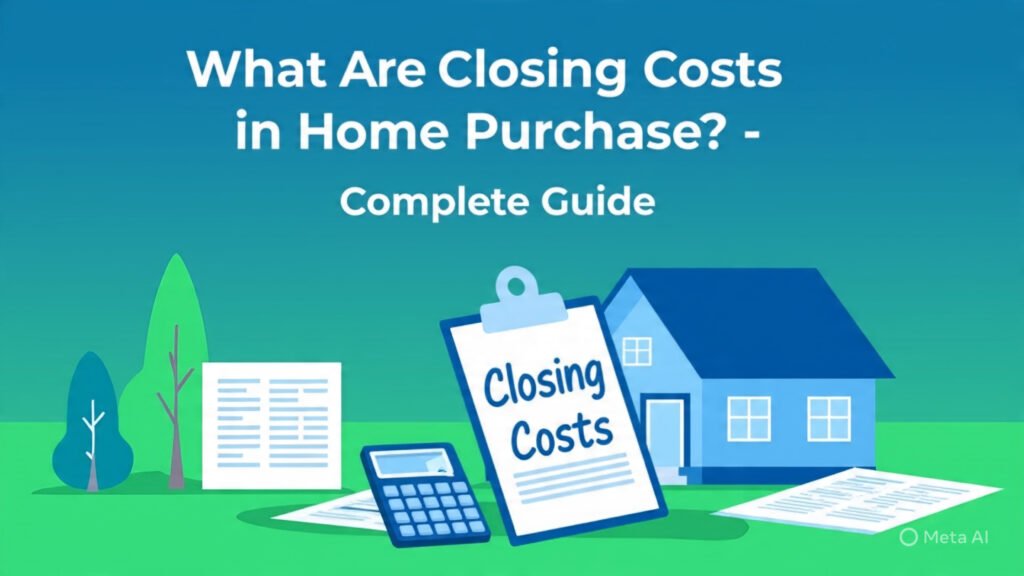Introduction
When buying a home, many first-time buyers focus only on the down payment. However, another major expense you must prepare for is closing costs. These costs cover all the fees and services required to finalize your mortgage and transfer ownership of the property. Understanding closing costs will help you budget properly and avoid surprises on the day you get your keys.

1. What Are Closing Costs?
Closing costs are the fees and expenses paid at the end of a real estate transaction, in addition to the property’s purchase price. They typically range from 2% to 5% of the home’s purchase price and cover services like loan processing, title searches, and legal paperwork.
2. What Do Closing Costs Include?
Closing costs vary depending on the lender, location, and property type, but they often include:
- Loan Origination Fees: Charges by the lender for processing your loan
- Appraisal Fees: Cost of assessing the home’s market value
- Credit Report Fees: For checking your credit history
- Title Search and Insurance: Ensures property ownership is clear
- Attorney Fees: Legal services during closing (in some states)
- Recording Fees: Charges by local government to record the property transfer
- Prepaid Costs: Such as property taxes, homeowners’ insurance, and interest
3. How Much Are Closing Costs?
Closing costs typically equal 2–5% of the home’s purchase price. For example:
- On a $200,000 home, expect closing costs between $4,000 and $10,000.
- On a $350,000 home, they may range from $7,000 to $17,500.
💡 Tip: Ask your lender for a Loan Estimate upfront, which breaks down all expected costs.
4. Who Pays Closing Costs?
Closing costs are usually paid by the buyer, but in some cases, the seller may agree to cover part of them as part of the negotiation. This is known as seller concessions.
5. Can Closing Costs Be Reduced?
Yes, you can reduce your closing costs by:
- Comparing lenders for better fee structures
- Negotiating with the seller for concessions
- Asking your lender to roll fees into the loan (though this increases long-term payments)
- Checking for first-time buyer programs that may cover some costs
FAQs – Closing Costs in Home Purchase
1. Are closing costs the same as a down payment?
No, closing costs are separate from the down payment and cover fees for finalizing the transaction.
2. Can I roll closing costs into my mortgage?
Yes, some lenders allow you to roll costs into the loan, but it increases your monthly payments.
3. Do first-time homebuyers get help with closing costs?
Yes, many government and state programs offer assistance or grants for first-time buyers.
4. When are closing costs paid?
Closing costs are typically paid at the final closing meeting, before you receive the keys.
5. Can closing costs be tax deductible?
Some closing costs, like mortgage interest or property taxes paid upfront, may be tax deductible. Always check with a tax advisor.
Conclusion
Closing costs are an essential part of buying a home, often overlooked by first-time buyers. By understanding what they include, how much they cost, and ways to reduce them, you can budget more accurately and enter homeownership without stress. Don’t forget to read Steps to Buying a House for the First Time – Complete Guide.
⚠️ Disclaimer: This article is for general informational purposes only. Closing costs vary by lender, state, and property type. Always consult a real estate advisor or mortgage professional for personalized guidance.